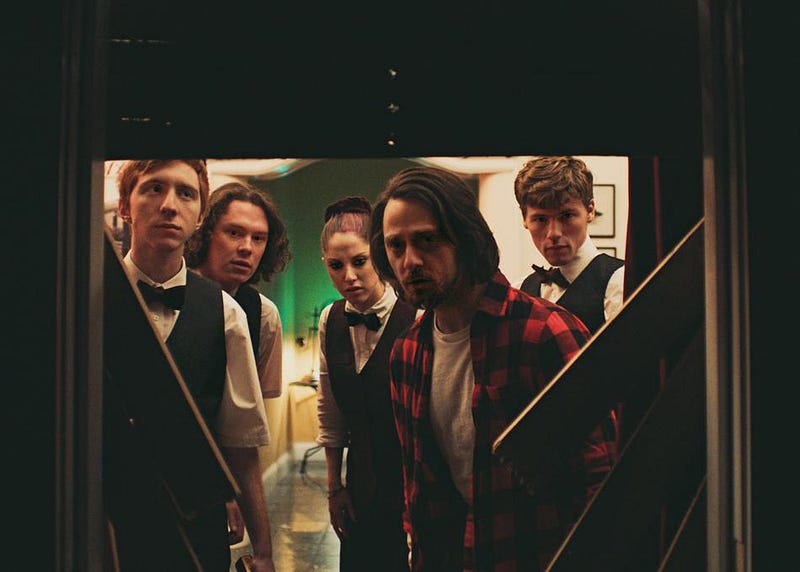The fest featured a strong slate of films from across the spectrum

Year after year, the Narrative Competition portion of SXSW is one of the strongest of the entire festival. The programmers look for filmmakers early in their career who are able to express a unique vision with a compelling voice. All the films mentioned here fulfill those requirements in spades.
The official winners were announced Wednesday at the SXSW Film Awards:
Narrative Competition Winner: Alice
Director: Josephine Mackerras
What starts off as a simple domestic story became a riveting tale of survival and female friendship that had us compelled from start to finish. For its nuanced character study and singular storytelling, the Grand Jury winner is Alice.
Special Jury Recognition for Best Ensemble: Yes, God, Yes
Director: Karen Maine
For this festival, we could have given out a dozen acting awards, but we could have also given a dozen acting awards for this movie. In this particular film, this entire cast made us laugh with their horny hijinks. The Special Jury Recognition for Best Ensemble goes to Yes, God, Yes.
Special Jury Recognition for Breakthrough Voice: Saint Frances
Director: Alex Thompson
This film tackles complex issues about family, politics, religion and women’s lives with a light touch that never felt preachy. For its realness and diverse vision, the Special Jury Award for Breakthrough Voice goes to Saint Frances.
What follows is the Cinapse take on this set of films. All are worth a watch for a glimpse into the current state of independent filmmaking, which if this festival is any indication, is incredibly strong.
Alice

There are demarcation lines of approved behavior for everyone. Good boys do this. Nice girls do that. When events happen outside of our control, all bets are off, and SXSW Narrative Competition entry Alice shows just how far that can go.
This French-language film delves straight into the heart of a family in crisis. Things start off well enough with Alice (Emilie Piponnier) and Francois (Martin Swabey) raising a son in relative comfort. Soon enough, Francois is gone, and Alice has to pick up the life he has destroyed through his selfish actions.
With a top-notch cast, perfectly ordinary Paris locations, and a story that bobs and weaves in perfect rhythm, Alice is a foreign film that hits universal themes. No woman should ever have to suffer what Alice does, but after seeing her resilience, there’s no doubt about the strength that is possible in all of us.
Yes, God, Yes

Puberty is tough on everyone, but when it must be reckoned with inside of a strict Catholic high school, the entire affair gets even more complicated. In Yes, God, Yes, we see a young woman coming to grips both with faith and her own body in a confused but authentic way.
Natalia Dyer (Stranger Things) might be 22 years old, but she plays the barely pubescent lead of Yes, God, Yes to a teen tee. Watching a young person learn the pleasures of masturbation is bound to be awkward, and Dyer pulls it off perfectly. Recounting much of the story of writer and director Karen Maine’s sexual awakening as a young, devout Catholic, the film has unique take on the coming of age story.
Saint Frances

The personal is political, but in art sometimes the message can overwhelm the narrative. Such is not the case with Saint Frances, which debuted to great acclaim at this year’s SXSW Film Festival.
On its face, a story of abortion, same-sex marriage, and postpartum depression might be expected to give primacy to the politics, but here the personal rules. Writer (and star) Kelly O’Sullivan and director Alex Thompson flex their muscles for the first time in a feature length effort, but the result is mature beyond their years.
Saint Frances won a “Special Jury Recognition for Breakthrough Voice” in the Narrative Competition category at SXSW. Here’s to hoping this film gets seen widely, as it is just the kind of authentic, heartfelt story our age needs.
Mickey and the Bear

If Camila Morrone becomes a fixture at SXSW going forward, that would be just fine. After last year’s Never Goin’ Back and now with Mickey and the Bear. Morrone has shown she has the goods, beyond her still brief IMDb profile. Here she’s joined by the always-getting-better James Badge Dale in a film that’s as beautiful as it is troubling.
Dale’s Henry is a vet suffering from all manner of problems whose daughter Mickey is essentially his caretaker. The volatility of his day to day combine with her fast approaching high school graduation means something has to change, and this tension threats to boil over throughout, and sometimes does.
On paper there are a lot of similarities with last year’s Leave No Trace, but the two leads couldn’t be more different. Henry isn’t withdrawing, he’s cyclically volcanic, and Mickey’s no sympathetic wilting flower, but a strong young woman, made stronger by the pressure of her circumstances. Shot in gorgeous and hardscrabble Montana, Mickey and the Bear captures the essence of familial trauma in the most heartfelt of ways.
Porno

Most films in the competition section are of a piece. They are usually pretty straightforward independent cinema, though great examples of such. This year might be a little different, and Porno is the best example. Seeing it with no context, one might think it was made for the Midnighters set. Its blend of horror and sex (or at least sex-adjacent) content might make it a fit for a late night at the Ritz.
Set in a small movie house run by a devout Christian, the staff of young folks struggles with varies temptations, none of them bigger than the sex demon that accidentally unleash after viewing a vintage piece of pornography. Yes, it’s ridiculous, but mostly ridiculous fun. There’s also some anatomically correct gore that’s sure to induce howl-worthy reactions.
The feel of Porno is much more 80’s teen comedy than actually gratuitous fare. Seeing the ensemble cast struggle with internal and external demons makes for an enjoyable ride. Porno might not be “classic indie,” but it holds its own against the other competitors in this section.
Go Back to China

Another “ripped from the director’s life” affair with Go Back to China, the story of a young woman who must move back to her parents’ homeland and work at her dad’s toy manufacturing company. In this case, the movie was actually shot at writer/director Emily Ting’s family factory.
Sasha (Anna Akana) is American through and through, but her wealthy father is tired of supporting this trust-fund kid. She moves to Shenzhen, reconnects with half-sister Carol (Lynn Chen), and learns the art of business. There are lots of halves to go around, as their dad has been a notorious philanderer who’s youngest two are named Christian and Dior. It’s the echoes of dad’s mistakes coupled with both his love for and expectations of his girls that makes for the biggest conflicts in the film.
In between the family drama, Go Back to China puts a face to the faceless masses behind mass manufacturing. Sasha becomes painfully aware of how much she’s been given and how little the workers receive. It’s globalism writ small in a compelling telling of their tale. Go Back to China marries the universal with the specific in a cross cultural tale of family mistakes and forgiveness.
Pig Hag

Pig Hag from directors Colby Holt and Samuel Probst explores one woman’s world in the face of societal expectations and her own emotional misfirings. It’s a look at loneliness so deep there can feel like no good options exist.
Jody (Anna Schlegel) is a bit of a mess: obese, angry, and self-loathing. While seeing her favorite rock band of all time (GnR, of course) she finally meets a good guy. When that goes south quickly, she rapidly falls apart.
The best part of Pig Hag is the wisdom she gets from “her gays” a group of four men who have been through hardships of their own and are both supportive of and castigating of Jody. It’s a type of friendship that often gets lost in stereotypes, but this film shows just how real and necessary it can be.
South Mountain

Hilary Brougher first came to SXSW in 1998 with The Sticky Fingers of Time. Now, 21 years later, she’s back with South Mountain, a compact, layered film about a family and all their entanglements and pain.
Lila (Talia Balsam) has her life turned upside down by her less-than-perfect husband Edgar (Scott Cohen). Over the course of one summer, we see the peaks and valleys of what happens when people love each other and hurt each other in equal measure.
Shot on location in and around a house (Brougher’s mother’s) in upstate New York, South Mountain lives on intense performances, creative tension building, and a somewhat voyeuristic look into how messy family life can be.


